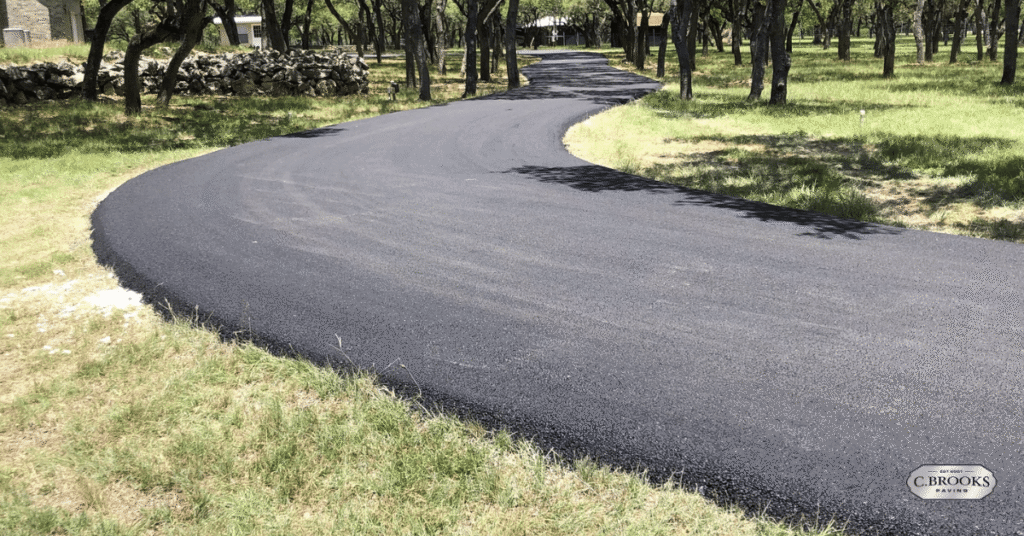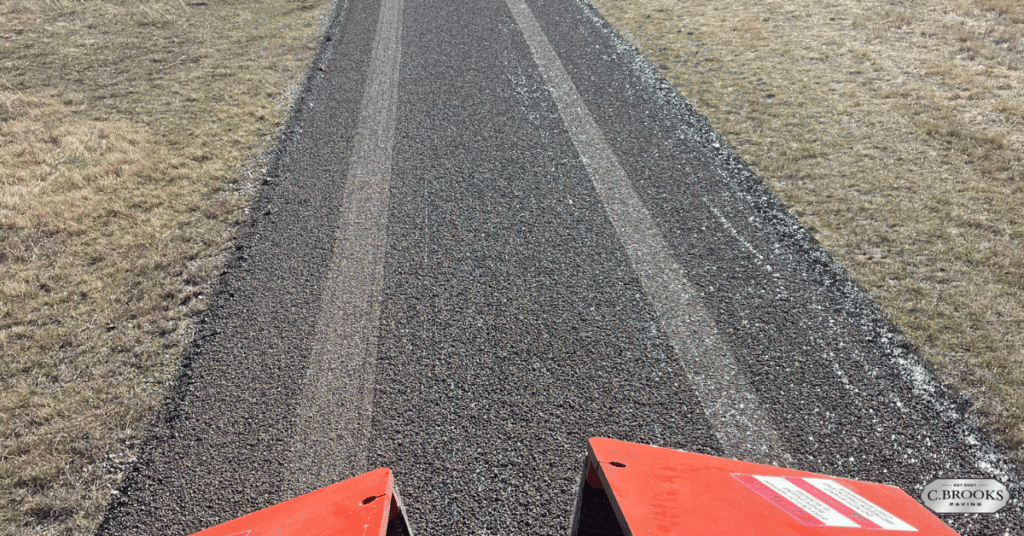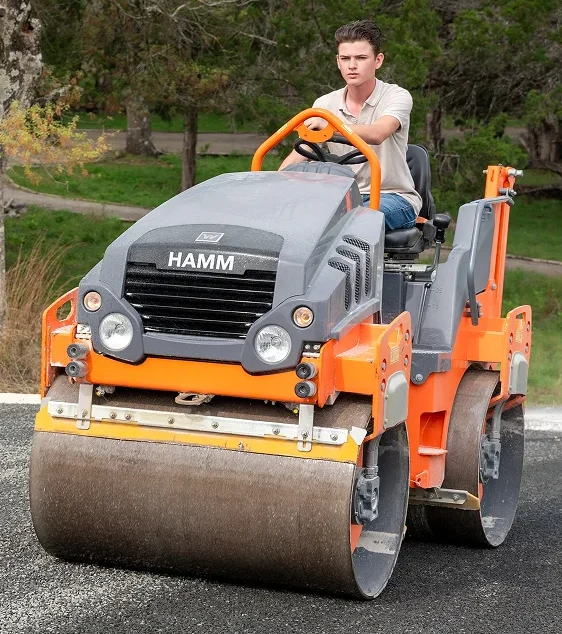If you’ve recently had a new asphalt driveway, parking lot, or roadway installation, you’re probably eager to start using it right away. While fresh asphalt looks smooth and ready, many property owners wonder: how long does it take for asphalt to cure?
The truth is, asphalt doesn’t fully harden overnight. While the drying process makes it usable for light traffic within a couple of days, the curing phase when asphalt gains full strength takes much longer. Knowing the proper cure time and following best practices for cleaning, repair, and maintenance ensures your asphalt pavement lasts for years.
What Does Asphalt Curing Mean?
When contractors install asphalt, it goes through two key stages:
- Drying time – The top layer of asphalt hardens within 24–48 hours. At this stage, the asphalt surface may handle light foot traffic or limited vehicle traffic.
- Curing process – The asphalt binder and oils within the pavement slowly stabilize. Depending on weather conditions, this can take six months to a year.
Many people confuse these stages, but just because asphalt looks dry doesn’t mean it has reached full strength. Properly waiting for asphalt to fully cure helps prevent cracks, damage, and costly asphalt repai later.
Typical Asphalt Curing Timeline
Although every project differs, here’s a general breakdown of asphalt cure time:
- 0–24 hours – Asphalt is soft; no use allowed.
- 24–48 hours – Safe for walking, and at the contractor’s discretion, limited driving.
- First week – Avoid parking in the same spot; weight may cause depressions.
- First 30 days – Stronger surface, but still within the curing phase. Use cautiously.
- 6–12 months – Asphalt is cured. The asphalt pavement reaches full durability.
This timeline shows why maintenance during the curing process is critical. Mistakes early on can affect the life of your asphalt for decades.
Factors That Affect Asphalt Cure Time
1. Climate and Weather Conditions
- Hot weather softens asphalt, leading to slower drying and curing.
- Excess rain or moisture from the asphalt can delay stabilization.
- Cooler weather helps asphalt harden faster.
2. Thickness of the Asphalt Layer
- Standard driveways with a thinner asphalt layer cure more quickly.
- New parking lots or heavy-use roads with thicker layers take longer to cure.

3. Asphalt Mix Type
- Hot mix asphalt is common for residential and commercial projects and usually takes several months to fully cure.
- Variations in asphalt mix can impact the time it takes to cure and dry.
4. Traffic and Usage
- Residential driveways cure faster due to lighter use.
- Busy new asphalt parking lots with delivery trucks and heavy vehicle traffic take longer.
How to Tell if Asphalt Has Cured
You may wonder, “how long does asphalt take to cure, and how do I know when it’s ready?” Signs include:
- Color fading from jet black to dark gray.
- A firm, hardened surface with no flexibility.
- Reduced scuff marks or tire impressions.
If your new asphalt surface still shows shiny patches or dents, the asphalt is still curing.
Mistakes to Avoid During the Asphalt Curing Process
Many property owners accidentally damage their new asphalt driveway or parking lot by:
- Driving too soon before asphalt dries.
- Parking heavy vehicles in one spot for too long.
- Spilling oil, gasoline, or chemicals (which can affect asphalt).
- Using harsh cleaning methods or pressure washing.
- Ignoring small cracks instead of scheduling asphalt repair.
Best Practices for Caring for New Asphalt
To extend the life of your asphalt during its curing phase, follow these steps:
- Limit heavy use in the first week.
- Change parking spots regularly to prevent depressions.
- Sweep lightly for cleaning, avoiding harsh chemicals.
- Schedule inspections with a trusted asphalt contractor.
- Address cracks early with professional repair.

Sealcoating After Asphalt Curing
Once asphalt is cured (usually within 6–12 months), applying an asphalt sealer is highly recommended. Sealcoating:
- Protects asphalt from sun, rain, and chemicals.
- Helps oils in asphalt stabilize.
- Extends the life of your asphalt driveway or parking lot.
Most experts suggest applying the first sealcoat within the first year and reapplying every 2–3 years.
Why Local Expertise Matters in Asphalt Installation
Local knowledge is critical when estimating asphalt curing time. In hot climates like South Texas, curing can take longer. An experienced asphalt paving contractor understands how weather conditions affect asphalt and can guide you on when it’s safe to drive on new asphalt or begin cleaning and maintenance.
Conclusion: How Long Does Asphalt Take to Cure?
If you’re wondering how long does asphalt take to cure, here’s a quick recap:
- Asphalt begins drying within 24 hours.
- It may take 72 hours to dry enough for cautious vehicle use.
- The asphalt curing process can take anywhere from six months to a full year.
- Proper care during the drying and curing phases prevents damage.
- Patience and professional guidance ensure asphalt continues to harden and last for decades.





